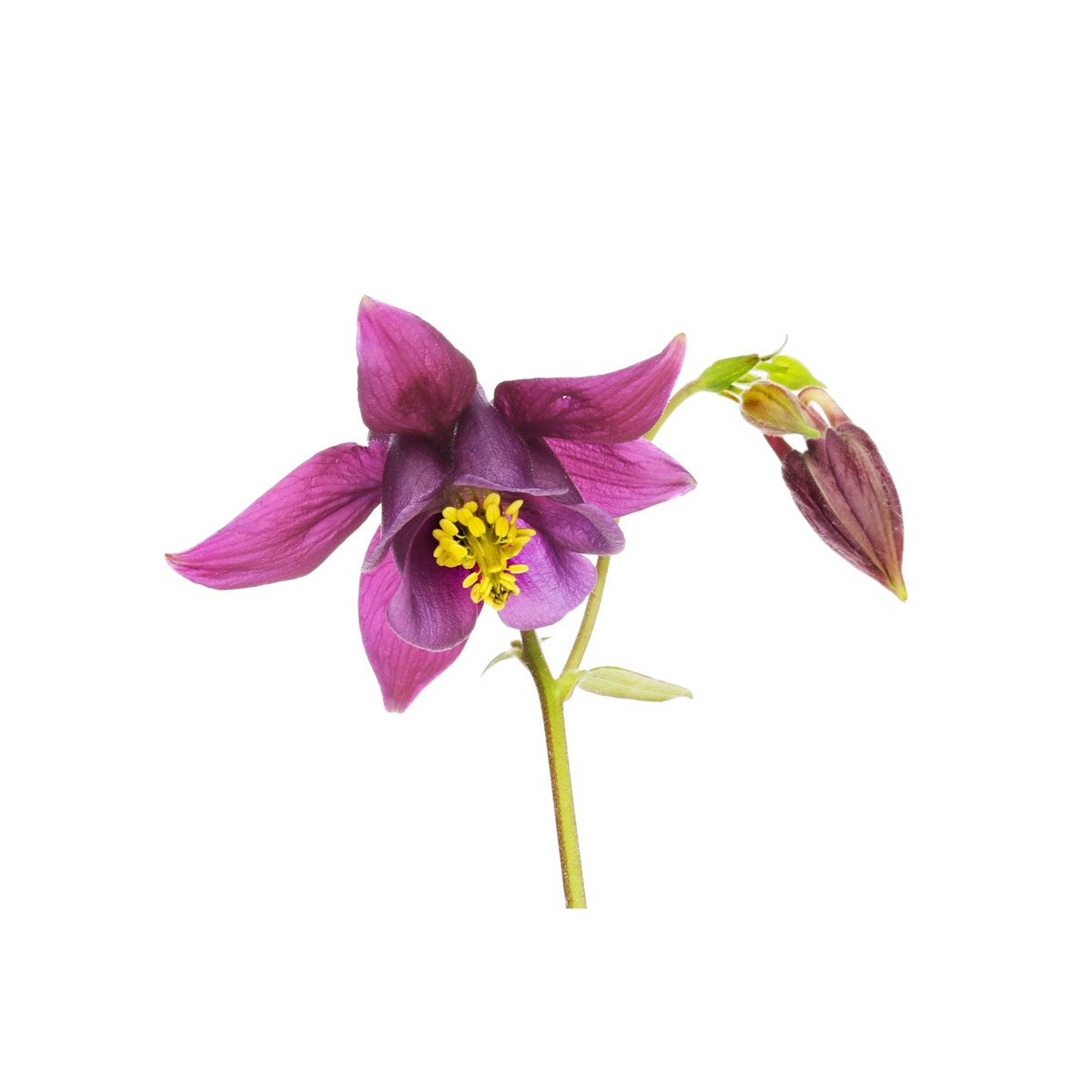Common columbine

Common columbine
Aquilegia
Plant family
Buttercup family (Ranunculaceae)
Also known as
European Columbine, Granny's Nightcap, Granny's Bonnet
Season Overview
Propagating
Planting
Harvest
Harvest
J
F
M
A
M
J
J
A
S
O
N
D
1ST YEAR
FOLLOWING YEARS
Details
Light requirement
Semi-shaded
Water requirement
Moist
Soil
Medium (loamy)
Nutrient requirement
Medium
Light germinator
Germination temperature
17 - 20 °C (Degrees Celsius)
Plant distance
25 cm
Row spacing
25 cm
Seeding depth
0.5 cm
Instructions
Description
Columbines are a genus of plants within the Ranunculaceae family. There are between 70-120 species, distributed mainly in the temperate climate of the northern hemisphere. Some varieties are used as ornamentals and are popular with insects. Columbines are perennial herbaceous plants, with the typical sepals and corollas of their flowers, which can be found from white to blue and yellow to red. Trivial names include gypsy bell, jester's cap, dove's flower, fairy glove, or Venus's chariot. The columbine is poisonous, and the common columbine is a protected species.
Origin:
Central Asia, North America, Europe
Growing tips
Low maintenance. There are differences between subspecies and varieties in terms of soil and moisture requirements. Cut back after flowering and then fertilize, then columbine will germinate again in the fall. Germination 4-6 weeks at 17-20°C in shade and even moisture. Does not thrive well next to birch or Norway maple. Good with silver candles, funcias, ferns, daffodils, iron hats, delphiniums, cranesbills, lentil roses, silver lady's mantle and watering hearts. Does not bloom until the 2nd year. Some varieties are cold germinators, some are not. Do not plant out the cold germinators until fall or very early spring. Sowing depth: 0.5 cm.
Companion Plants
Chard
Chives
Daffodils / Narcissus
Forget-me-not / Scorpion grasses
Funkien
Geranie/Pelargonie
Hydrangea / Hortensia
Iris
Knotenblumen
Krokus
Lettuce (Common chicory)
Lettuce (Endive / Escarole / Erisée)
Lettuce (Lamb's lettuce)
Lettuce (Lettuce)
Lettuce (Oriental greens / Brown mustard)
Lettuce (Radicchio / Italian chicory)
Lettuce (Sugar loaf)
Lilien
Melissa
Nieswurzen
Parsley
Pea
Peony
Radishes
Rittersporn
Rose
Schneeglöckchen
Spinach (Summer)
Spinach (Winter)
Taglilien
Tulip
Ziergräser - Segge
Antagonistic Plants
Ahorne
Aubergine / Eggplant
Broccoli
Broccoli raab / Stem cabbage / Cima di rapa
Brussels sprouts
Cabbage (Cabbage)
Cabbage (Pointed cabbage)
Cabbage (red cabbage)
Cabbage (Savoy cabbage)
Cauliflower
Chili
Collard greens
Collard greens (Kale)
Collard greens (Tuscan kale / Dinosaur kale / Palm tree kale)
Courgette / Zucchini
Cucumber / Gherkin
Efeu
Gemüsekohl - Flower Sprouts / Kohlröschen
Gemüsekohl - Kai-Lan / Chinesischer Brokkoli
Gemüsekohl - Wildkohl / Urkohl
Kohlrabi / German turnip / Turnip cabbage
Napa cabbage / Chinese cabbage
Okra
Ornamental pumpkin
Pepper / Paprika
Pumpkin / Squash
Sunflower
Tomato (Bush tomato)
Tomato (Cocktail bush tomato)
Tomato (Cocktail Stake Tomato)
Tomato (Stake tomato)
Ziergräser - Schilfrohr, Pfahlrohr, Rohrkolben
Diseases
Septoria
Downy mildew
Powdery mildews
Pests
Land snails
Leaf-miner flies
Aphids